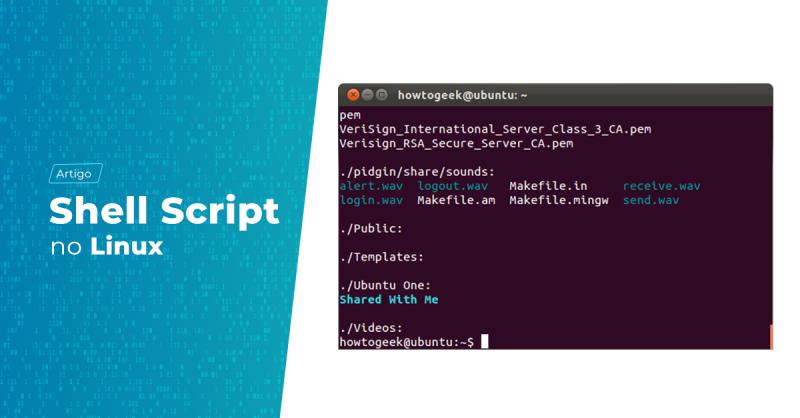Why to learn shell scripting?
Learning shell scripting, particularly in a Unix-like environment (e.g., Linux), can offer numerous benefits and practical applications for both individuals and businesses. Here are some compelling reasons to learn shell scripting:
Automation: Shell scripts allow you to automate repetitive tasks and processes. You can create scripts to handle routine system maintenance, data backup, file management, and more. This can save time and reduce the risk of human errors.
Efficiency: Shell scripting enables you to perform complex operations and system management tasks with a single script or command. This efficiency is valuable in both personal and professional settings.
Customization: Shell scripts can be tailored to your specific needs. You can create scripts that match your workflow and requirements, making them highly adaptable.
Scripting Languages: Learning shell scripting introduces you to programming concepts and scripting languages. Many of the skills and concepts you acquire can be applied to other programming languages as well.
System Administration: Shell scripting is a valuable skill for system administrators. It allows them to manage and maintain servers, perform software installations, and troubleshoot issues efficiently.
Data Processing: Shell scripts are useful for processing and manipulating data. You can automate data extraction, transformation, and loading (ETL) tasks, making them particularly useful in data analysis and reporting.
Batch Processing: Shell scripts can be used for batch processing of files or tasks, such as converting multiple files from one format to another or running a series of data analysis operations on a dataset.
Monitoring and Alerts: You can create scripts to monitor system performance, log files, and specific events. When predefined conditions are met, these scripts can trigger alerts or actions.
Security Auditing: Shell scripting can help in security-related tasks, such as scanning logs for suspicious activities or checking system configurations for vulnerabilities.
Application Deployment: In DevOps and continuous integration/continuous deployment (CI/CD) pipelines, shell scripts are often used to automate application deployment and testing processes.
Cost Savings: For businesses, shell scripting can lead to cost savings by reducing the need for manual labor and streamlining processes.
Learning Environment: Shell scripting provides an excellent learning environment for those interested in programming and system administration. It's a practical way to apply and reinforce programming concepts.
Community and Resources: There is a vast online community and a wealth of resources, tutorials, and forums to support your learning and problem-solving in shell scripting.
Job Opportunities: Proficiency in shell scripting can open up job opportunities in fields like system administration, DevOps, data analysis, and cybersecurity.
Whether you're a system administrator, developer, data analyst, or someone looking to enhance their technical skills, learning shell scripting can be a valuable and versatile skill that empowers you to automate tasks, improve efficiency, and solve a wide range of real-world problems in the computing world.
Shell scripting is a powerful tool that can be used to automate many tasks, from simple file management to complex system administration. It can be used to automate repetitive tasks, save time, and improve efficiency.
Here are some practical applications of shell scripting:
- Automating system administration tasks: Shell scripts can be used to automate many common system administration tasks, such as backing up data, installing software, and configuring networks.
- Managing files and directories: Shell scripts can be used to create, move, delete, and rename files and directories.
- Processing data: Shell scripts can be used to process text files, CSV files, and other types of data.
- Developing web applications: Shell scripts can be used to develop web applications, such as CGI scripts and web services.
- Automating testing: Shell scripts can be used to automate testing of software applications.
Here are some common shell scripting tasks:
- Creating and managing files and directories
- Copying, moving, and deleting files and directories
- Renaming files and directories
- Searching for files and directories
- Executing other programs
- Processing text files
- Sending email
- Accessing databases
- Managing network connections
- Scheduling tasks
Here are some resources for beginners to learn shell scripting:
- Shell Scripting Tutorial by Linux Foundation
- An Introduction to Shell Scripting by Yale University
- Learn Shell Scripting A-Z™: Zero to Mastery by Zarko Gajic
- Shell Scripting Tutorial by TutorialsPoint
- Shell Scripting for Beginners by Programming with Mosh
Here are some key concepts to master in shell scripting:
- Variables: Variables are used to store data.
- Operators: Operators are used to perform operations on data.
- Control flow statements: Control flow statements are used to control the flow of a program.
- Functions: Functions are used to group together blocks of code.
- Input and output: Input and output are used to interact with the user and the filesystem.
Once you have a basic understanding of the key concepts of shell scripting, you can start to learn more advanced techniques, such as:
- Regular expressions: Regular expressions are used to match patterns in text.
- File handling: File handling is used to read and write files.
- Networking: Networking is used to communicate with other computers.
- Process management: Process management is used to control the execution of programs.
Shell scripting is a powerful tool that can be used to automate many tasks and improve your workflow. With a little effort, you can learn the basics of shell scripting and start using it to make your life easier.













